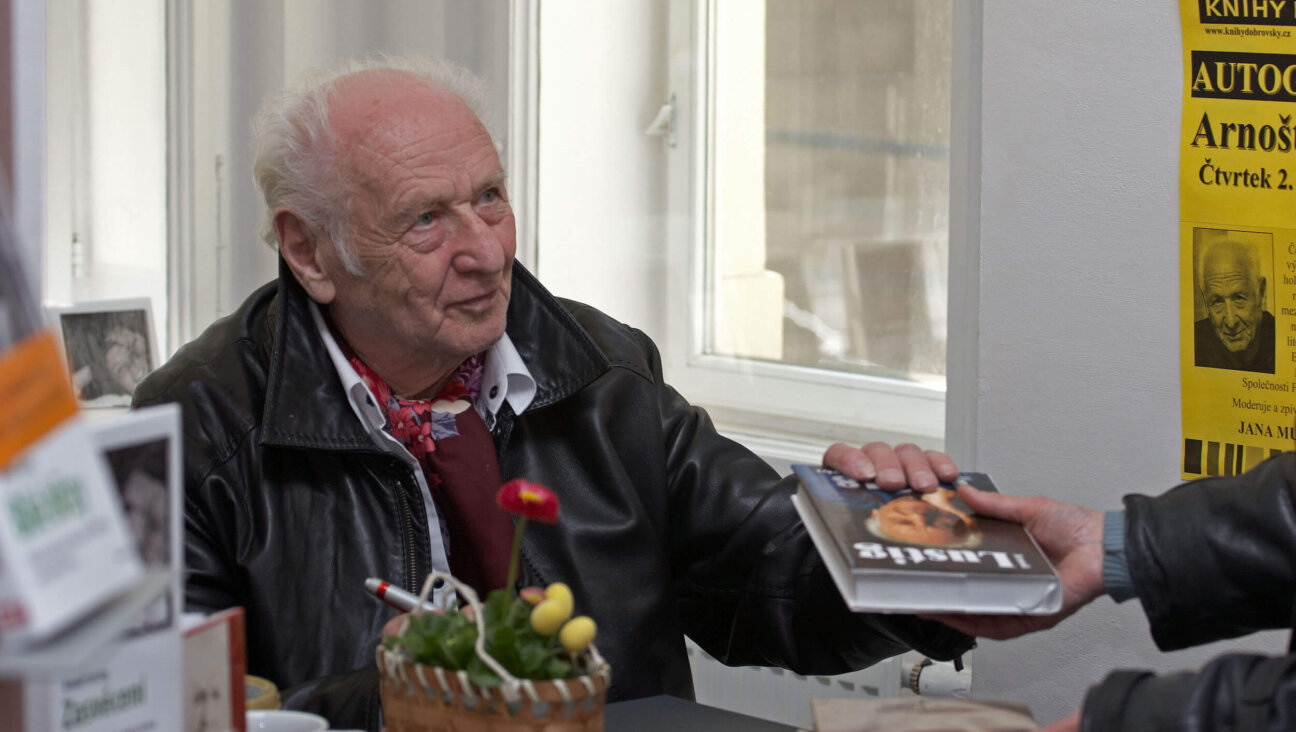On the Radio
Since 1922, when radio was exceedingly new, Forward business manager Boruch Charney Vladeck had dreamed of a transmitting tower atop the Forward building — already the most imposing structure on Manhattan’s Lower East Side. In 1932, Charney Vladeck convinced his boss, Abe Cahan, to come up with $250,000 to bail out New York’s faltering radio station WEVD, founded five years earlier and named in honor of the Socialist Party’s recently deceased leader Eugene Victor Debs. Following that cash infusion, the Forward took control of the station’s content. “WEVD is no commercial venture,” Charney Vladeck said, “but an adventure in public service and civic idealism.”
The diamond in the tiara of the new WEVD was the “Forverts Sho” (“Forward Hour”), a “living newspaper” that brought the pages of the Yiddish daily to life. With its triumphal theme music (a rousing medley of revolutionary hymns, including “La Marseillaise” and “The Internationale”), the show dominated its 11:00 a.m. Sunday primetime slot. Each “Forward Hour” featured an orchestra, a chorus and soloists, plus a bevy of famous actors and actresses who staged everything from letters in the newspaper’s A Bintel Brief column to plays by such writers as Kadya Molodowsky, Isaac Bashevis Singer and Nahum Stutchkoff for an enthusiastic studio and home audience.
By 1938, WEVD was in swanky facilities at 117 West 46th Street, boasting four studios and a modern art deco theater with seating for 100. Despite competition from 25 other stations in the New York area broadcasting dozens of hours of Yiddish programming a week, WEVD — like its parent — was the biggest game in town.
The postwar era saw a downturn in the fortunes of both Yiddish and radio. The “Forward Hour” lost its live studio audience, then its live orchestra, then its live actors. What kept the “Forward Hour” vital during those declining years was the witty and timely verse of Zvee Scooler, known as “Der Grammeister” (the master of rhyme). A staple of the show since its inception, Scooler’s mellifluous multilingual delivery thrilled tens of thousands of wildly loyal listeners until his death in 1985.
What followed were frequency sales, acquisitions and chaotic broadcast-schedule changes. (For a while, the show would be pre-empted by reruns of hockey and basketball games.) Proposing the revival of the old live “Forverts Sho” in a “Prairie Home Companion” format, National Public Radio producer Jon Kalish and I were hired in 1990 to create a more modest, modern program on which we featured live music, and produced segments, historic period 78-RPM records and Yiddish radio programs. It aired until 1995. The program was then re-launched in its current format, with Forverts editor Boris Sandler at the helm.
With the 2002 sale of WEVD’s 1050-AM frequency, the “Forward Hour” switched to WMCA, where its moytse shabes (Saturday night) 9:00 p.m. airtime appears to have little hope of attracting new, young listeners. The “Forward Hour,” therefore, is pinning its hopes on the Internet, where it can be heard anytime, anywhere in the world, at http://yiddish.forward.com/radio.
In this age of late-breaking news and digital sound, is being on the Internet enough in itself? Can the show seize the moment and, like Charney Vladeck, challenge the aesthetic boundaries of a new mass-communication medium and create original, innovative programming — and a modern format — and so inspire a new generation of loyal “Forverts Sho” listeners?
Stay tuned.
Henry Sapoznik is the producer of the 2002 Peabody Award-winning NPR series “The Yiddish Radio Project” and the founder/executive director of the not-for-profit Yiddish folk-arts organization Living Traditions (www.livingtraditions.org)[www.livingtraditions.org].















